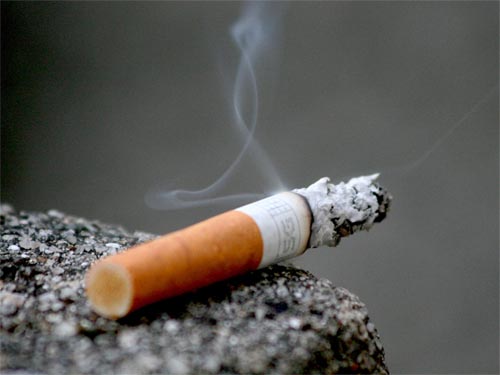A debate that got rather heated and resulted in little meaningful compromise three years ago was resurrected this week.
Yesterday was the first meeting of a new Wesleyan Council on Student Affairs committee of students administrators and service providers (including Chartwells and Aramark) set to the task of fulfilling the 2011 resolution to make Ohio Wesleyan’s campus smoke-free.
The reasons behind the resolution are certainly sound. WCSA is rightly concerned about the negative health effects of tobacco and second-hand smoke, and the members’ interest in the campus’s health is commendable.
But I am very hesitant to align myself with any sort of claim that a smoke-free initiative is the correct way to do this.
First, it is rather unclear, at least in the current student body’s consciousness, what “smoke-free” actually means. Does it mean no one on campus will be allowed to smoke any kind of legal tobacco product, or tobacco substitute (like an electronic cigarette), under any circumstances? Or would WCSA follow many other universities and create designated smoking areas?
Materials WCSA sent out soliciting committee members indicated the organization wasn’t certain which of those solutions it would pursue, or if either was the right one. I hope determining a definition of “smoke-free” is one of the committee’s first tasks. If a definition exists in the 2011 resolution, I think it’s unfair to apply it to a student body whose makeup is almost entirely different from when the resolution was passed.
Vagueness is one of the most odious weaknesses a policy can have. A lack of specific definitions undermines a policy’s authority.
In creating these definitions and politices that follow from them, there is another thing WCSA must be mindful of — the insidious class implications a smoking ban or limiation would have in an environment like OWU’s campus.
Students are not the only ones who smoke. We often see people without whom the university would not be able to function smoking at any given place around campus. These are the people who cook and serve us our food, clean our residential and academic buildings, and maintain our landscaping and infrastructure. They are the most important people to this place. Without them, it would fall apart.
For many, it seems, smoking is a brief break from long days of work that more than likely doesn’t pay very well, from the criticism of the bourgeois students who do not know what that work is like. To take that stress relief away seems almost cruel.
In the same vein, not every student is bourgeois. There are students who work multiple jobs — not two five-hour-a-week gigs on campus, but multiple part- or full-time jobs — to study at OWU. And there are students who may smoke to relieve the stress of other troubles. Perhaps it’s not ideal in a narrow health sense, but it’s unfair of privileged people to deem that stress relief technique unworthy and subject to student regulation.
For these reasons, I am strongly skeptical of the notion that any sort of smoking regulation would achieve the health objectives behind it. Prohibitive, paternalistic policy is never a good answer — especially within this class dynamic. If WCSA decides it is, it ought to provide profuse resources to aid compliance with the policy.
